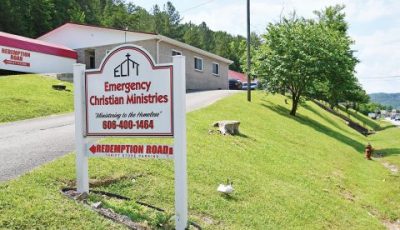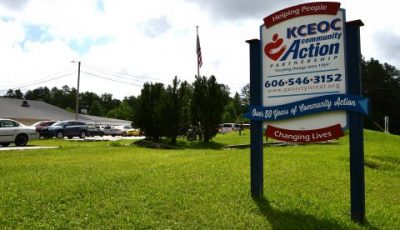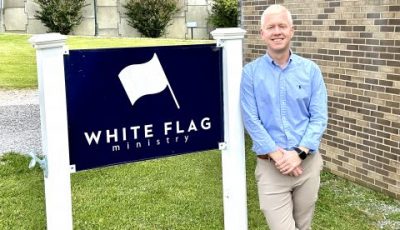Housing Insecurity: Local landlords volunteer to answer the question, ‘Why is rent so high?’
Since this series on housing insecurity began earlier this summer, one problem has been pointed to over-and-over again by those who have been interviewed. Regardless of their individual positions, when asked what the main barrier to housing security is right now, the answer at the top of the list has typically been the overall lack of low-income rental properties that are currently available.
According to recent statistics released by the National Low Income Housing Coalition (www.nlihc.org), the United States is currently faced with a shortage of approximately 7.3 million affordable and available rental homes for extremely low-income renters. In a state-by-state breakdown, the NLIHC also revealed that the fair market rent for a two-bedroom apartment in Kentucky is currently $1,090, meaning a household must make $43,612 annually in order to afford to live there. Of course, this is a state average, so the actual figures may increase or decrease depending on the exact location.
Landlords in our area have taken some heavy criticism lately for the fact that units are well outside of the price range for low-income families and individuals, but a couple of those landlords have stepped forward to try and offer some explanation for why that is.
Blake and Barrett Freeman own and operate Freeman Brothers Properties in Corbin, a business that offers property management services, a dedicated maintenance division, and a real estate brokerage, Freeman Brothers Realty, which opened in 2023.
Many in the area will likely know the Freeman brothers best as lawyers working out of the Freeman and Childers Law Office, located in downtown Corbin, but they have become increasingly involved in real estate in recent years. Maintaining an active presence on social media, they have also opened themselves up to much of the aforementioned criticisms by members of the public who don’t agree with the asking price for many of the rental units that are being placed on the market.
“We are definitely in a housing crisis right now where there isn’t enough rental property, and it’s only getting worse,” Barrett Freeman said. “Building materials are higher than they’ve ever been, and labor is higher than it’s ever been.”
Freeman also added that long waiting lists to get into public housing units, and the fact that the government is not approving the construction of new units, are also contributing factors.
As Blake Freeman explained, he and his brother had a vision for their business when they first moved back to this area nearly ten years ago after completing law school. “When we moved back here in 2015, we knew that we wanted to get into the rental business because our family has been in it forever,” he said. “The easiest way for us was to buy houses, because when we moved back there were houses in disrepair in downtown on nearly every street.”
According to Freeman, many of these dilapidated properties were being rented for under $400 with no central heat and air and other major issues, such as floors that were falling through. He said these particular houses could be bought at a low price, and then a large amount of money was invested in them in order to remodel and fix long-standing problems.
“Once we took over these houses we couldn’t charge the same rent, because the mortgage payments became so much higher,” Freeman explained. “We would lose money if we charged rent at those rates.”
“If you’re committed to maintaining the property, you have to build in 30 percent on top of whatever the mortgage payment is,” Barrett Freeman said, adding that, in some cases, he and his brother have invested upwards of $50-60 thousand dollars to get a house ready to rent.
“Many of the previous landlords were fine with cheap rent, but it was because they were not having to do any maintenance or anything,” Blake Freeman said.
Expanding on the idea that being a landlord should be about a lot more than just collecting rent payments, Blake Freeman said, “People don’t understand that we have mortgage payments. We have insurance payments and tax payments. They think that we are just pocketing the rent payments, but we collect that and then pay the bills with it.”
“The reality is, we have a 20-year mortgage,” Freeman continued. “Once we get that paid off, we will probably have to re-finance again to completely remodel the house. Another big problem is that, when someone moves out of a house, it costs an average of about $5,000 to get it ready to rent again.”
So, if owning and maintaining these rental properties is so burdensome, why get into that business in the first place? The Freemans explained that, in real estate, it’s all about keeping the longterm in mind.
“Property is all about time,” Barrett Freeman said. “The benefits do not come from rent. It is from the appreciation of the property.”
Blake Freeman added, “The end goal for us is to pay the mortgages down, and then you have assets that you can borrow against. There is really no immediate benefit, but the property, in theory, is becoming more valuable every year. As we pay down our loans over time, we are building equity that we can use to buy something else in the future if we want.”
When it comes to paying off those loans and performing all of the necessary property maintenance, Blake Freeman said that banks want to make sure that landlords have the ability to pay money back on time. “If we could live off of the real estate company, we would,” he said. “But we have full-time jobs. Banks will not loan to people who want to get into real estate unless they have a full-time job, because you just can’t make it without one.”
When it comes to the differences between approaching housing as a business versus simply providing it as a basic necessity, Blake Freeman said, “With us running a for-profit company, we have to charge rent based off of how we can pay our bills. It’s not like we can just say we’re going to help everyone out and lower rent by 40 percent. It’s really not an option, because we wouldn’t be able to pay our bills. We would go bankrupt, so the only option that I see would be if the government was providing more low-income housing. I don’t see how they’re going to do that without losing money as well, though, which would probably just lead to more taxes.”
On the subject of Housing and Urban Development (HUD) vouchers, Barrett Freeman said, “If someone calls us with a HUD voucher, we would love to be able to rent to them, but the problem is that HUD won’t pay enough to cover the rent that is required in order for us to make all of our payments and make enough money to cover maintenance costs. So, it’s just not an option. We wish it was. We have tried it before.”
Editor’s Note: For more information on the United States government’s HUD Housing Choice Voucher Program, see the online fact sheet available at www.hud.gov/topics/housing_choice_voucher_program_section_8
As for anyone who has managed to maintain a trend of upward mobility, and may be ready to look into the option of purchasing their own home, Barrett Freeman said, “I get Facebook messages all the time from people who say, ‘I don’t know where to start on buying a house.’ Even if you have bad credit, talk to a lender first. They are in the business of giving people money, and they love to give people money for real estate because real estate is a secure debt.”
“Even if your credit is not great, or even bad, they (the lender) can give you a plan to get your credit to where it needs to be so that you can qualify for these loans,” Freeman added. “There are all kinds of programs, especially in these rural areas. It is so much nicer when you have a plan, or a goal to work toward, and you can actually get there.”
If you are ready to begin looking into options for becoming a home owner, seek out the guidance of a lender at your preferred local banking institution or mortgage broker.
With next week’s finale in this series of articles on housing, we will look at a few more resources that can help people avoid experiencing insecurity. Those resources include adult education, behavioral health and workforce readiness.








